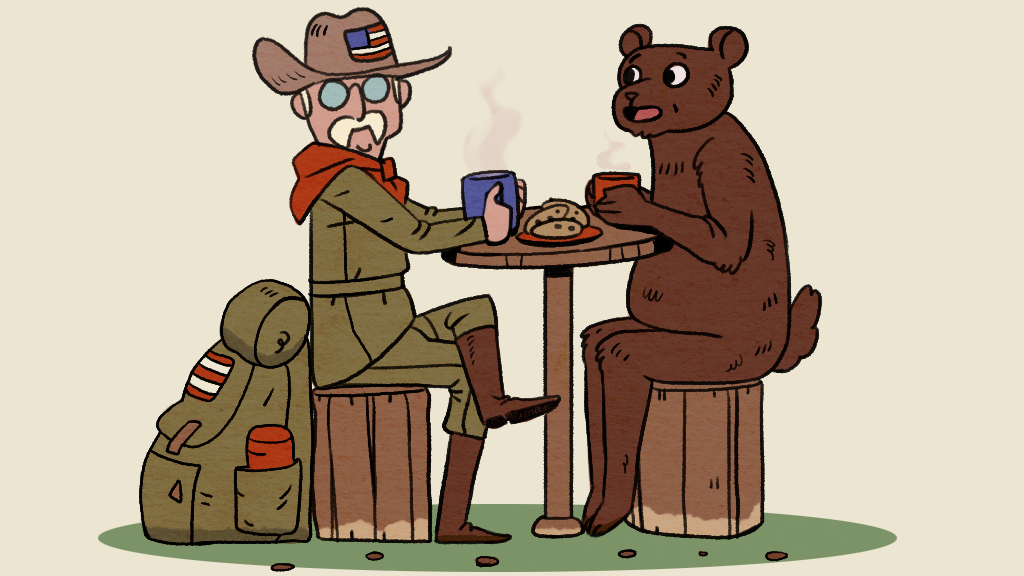What would you do if you suddenly found yourself free of the magnanimous responsibility of managing a country? Well, that is a question that plagues most U.S. presidents after they’ve served their term(s). Some have gone on to start foundations to help the world, while others have used their fame to launch businesses. Some have even gone on to become Supreme Court judges while still others have gone on a voyage of discovery.
The Global Spotlight
U.S. presidents are some of the most watched people on the planet. From the very moment they’ve been declared president to the time that they leave office, both their public and private life is up for scrutiny and questioning. Once their term(s) are over, many presidents have had to work to earn a living; most earning money from writing books and giving speeches.
Since the 2000s brought about far greater access to information, more knowledge has been made available about the lives of presidents. Now the stage has shifted; past presidents have begun to play a more engaging role in politics. While many have chosen to keep one foot in the public eye, few have done so in such a political manner as former president Barack Obama.
Recently, Obama made an appearance at the University of Illinois-Urbana Champaign, where he spent a considerable amount of time criticizing the man he handed power over to in 2017. In his longest critique on the Trump Presidency and the GOP yet, Obama slammed the current president on various issues such as the Charlottesville riots to using the criminal justice system as a cudgel to punish political opponents.
The Impact of a Political Celebrity
On the occasional basis, presidents have been known to use their status to present speeches at college campuses across the country.
President Jimmy Carter visited RIT in 1991 to present his lecture as the Horton Distinguished speaker that year. President Gerald Ford visited campus for a talk in 1992. Five years later, President George H.W. Bush addressed the class of 1997 as RIT’s 112th commencement speaker. Clinton, the 42nd president of the United States, has been the only former president to have visited the RIT campus more than once. The former president came in 2005 and then again in 2007 to tour the B. Thomas Golisano College of Computing and Information Sciences and to serve as the keynote speaker for RIT’s 122nd annual commencement ceremony.
Speak Out, or Stay Silent?
Professor Tamar Carroll in the Department of History in the College of Liberal Arts suggested that former presidents need to be very clear when making controversial political statements.
”It has been customary for presidents to give their successor some space and let them step into the role of the president," she said. “It is extremely important for ex-presidents to remember that they no longer have the authority of the office of the president of the United States of America, and they must be very clear when making statements on political issues on whether they speak about the issue as a private citizen or as a representative of the current administration."
A similar scenario occurred when former President Jimmy Carter went to North Korea as a private citizen and negotiated a deal to halt the proliferation of nuclear weapons on the Korean peninsula, without the authority of the White House. The deal caused confusion and took time to sort out.
"At the same time, they [former presidents] also have been very helpful in some circumstances where they support and aid the current administration in various policies," Carroll said. "While past presidents needn't stay away from political hot-button issues, it would be better advised to do non-governmental work — or even if they feel compelled to speak out, to make sure to be very clear of their stance on the issue."
According to Carroll, almost all presidents leave office as celebrities despite their popularity during their presidency. That being said, she questioned the ethicality of presidents using their status to launch business or products.
”I do not approve of it when presidents use their star status to earn money. I expect them to use any proceeds from books or speeches to go towards acts of charity. But since there is no law prohibiting it, it is perfectly legal to do so," she said.
Joseph Henning, a history professor in the College of Liberal Arts had his own ideas on how a president should behave after office.
”There is a thin line between respecting the office of the president and speaking out against the actions of the occupant," he said. ”While I think it best for ex-presidents to generally remain aloof and away from the public eye, I am perfectly comfortable with Obama speaking out on the Charlottesville riots and children being separated from their parents at the border because of the way the issue was handled by the Trump administration is reprehensible."
The general consensus seems to be that presidents, once they've left office, have the same rights as any citizen: speaking up and voting their opinions. But it becomes all the more important when the person once had top security clearance. Professor Henning and Professor Carroll both seem to agree regarding that.
Each president enjoys the same rights as any U.S. citizen and can do anything he wants to. While some presidents have largely stayed outside the public eye and become family men or entrepreneurs, others continue to remain in it. Some well-known examples of this include organizations like the Carter Center or the Clinton Foundation. Others choose to go on an adventure to explore Brazil, like Teddy Roosevelt, or play the stock market, like George Cleveland. There is clearly no shortage of things to do, even though you've gone from the arguably most powerful office in the world to just another citizen.








